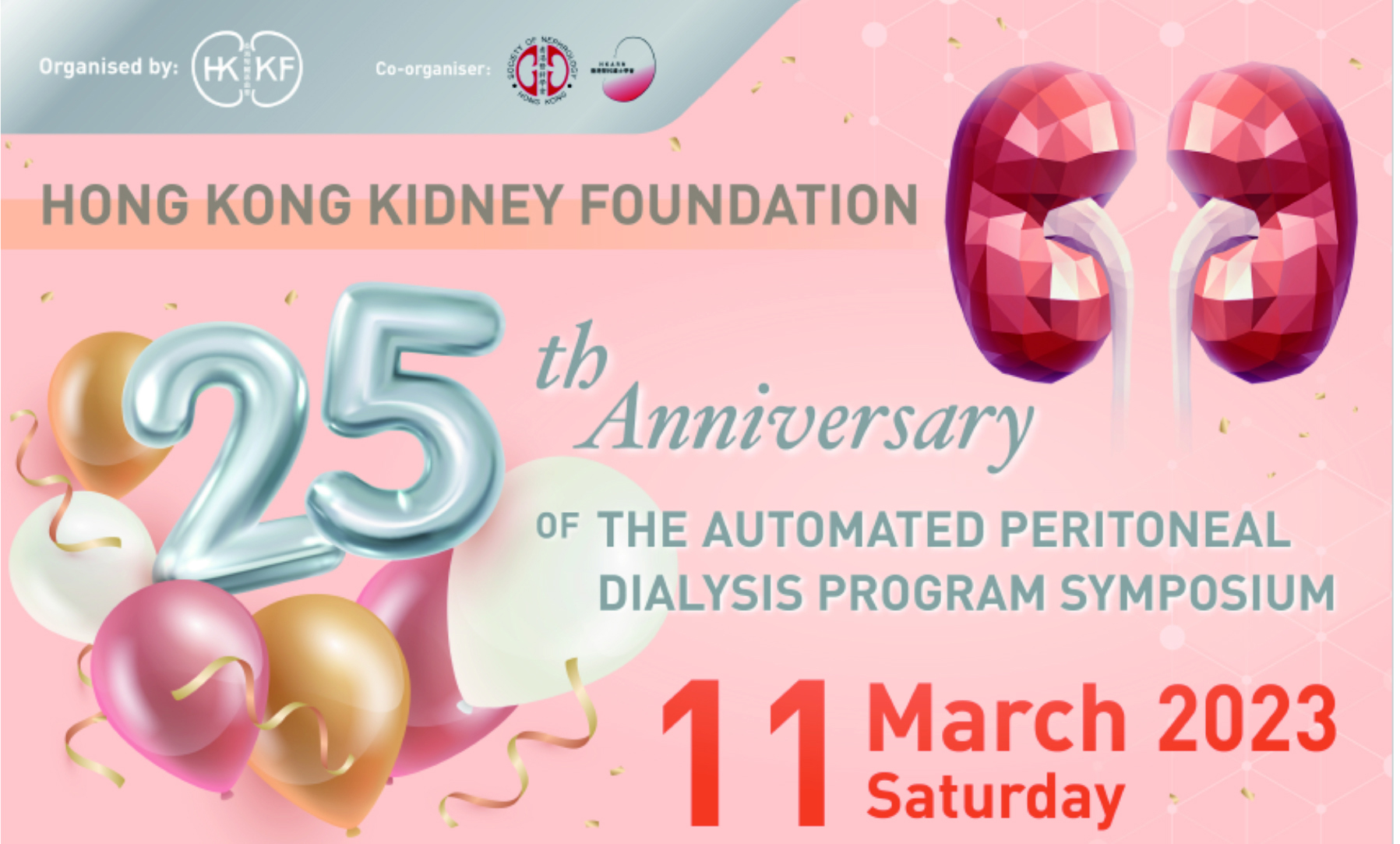
End-stage renal disease (ESRD), a common condition among patients with diabetes or high blood pressure, is characterised by malnutrition, neuropathy, dry skin, nausea, and anaemia, often leading to reduced quality of life and premature mortality. As the lives of most ESRD hinge on dialysis, a safer, more personalised treatment option with automated peritoneal dialysis (ADP) is vital to patients’ health.
On 11th March, The Hong Kong Kidney Foundation organised The 25th Anniversary of the Automated Peritoneal Dialysis (APD) Program Symposium. The symposium commenced with an opening speech by Dr. Lui Siu Fai, Chairman of the Hong Kong Kidney Foundation, and Dr. Leong Che Hung, President of Hong Kong Kidney Foundation, followed by a presentation of HKKF APD program & patient survey by Dr. Lui Siu Fai and Dr. Cheng Yuk Lun. For the past 25 years since 1997, Hong Kong Kidney Foundation has procured 1323 APD machines (worth approximately HK$111 million) and has supported 2516 patients to use every night, amounting to about 2,400,000 APD treatments. Then, Prof Edwina Brown, President of the International Society for Peritoneal Dialysis, was invited to share her experience in APD, titled “APD: An essential component of personalised PD prescribing”.
Given that Kidney Disease Improving Global Outcomes (KDIGO) upgraded “adequate dialysis” to “goal directed dialysis” in 2018, Prof. Brown emphasised the need for shared decision-making when prescribing dialysis treatment. Among the available PD treatments, ADP is more personalised because it allows a more flexible treatment schedule and mobility. Nevertheless, Prof. Brown reminded us that patients’ co-morbidities, physical disabilities, social activities, psychological readiness, and treatment cost-benefit should be considered when prescribing APD. She added that incorporating incremental PD that matches the patient’s residual kidney function into the treatment program could achieve individualised clearance goals, thus optimising treatment outcomes and lowering operating costs.
Considering the advancement of APD technology, Prof Brown furthered the discussion of APD to patient monitoring. Recently, cycler machines can store APD medical records, body weight and blood pressure of patients, thus enabling remote patient monitoring and early identification of acute problems. In the end, she reiterated the importance of shared decision-making in PD prescription and the need to fit dialysis into patients’ lifestyles.
After the tea break and an update on the APD program in Hong Kong, Dr. Chow Kai Ming, Chairman of Hong Kong Society of Nephrology, and Dr. Amelia Chao did a case sharing of APD patients developing peritonitis. Ms. Janet Leung, a council member of the Hong Kong Association of Renal Nurse, shared her clinical experience in remote nursing management for APD patients. As the symposium ended, Prof. Edwina Brown was invited to present her thoughts on the future of APD.

A group photo of keynote speakers and members of organising committee of the event.
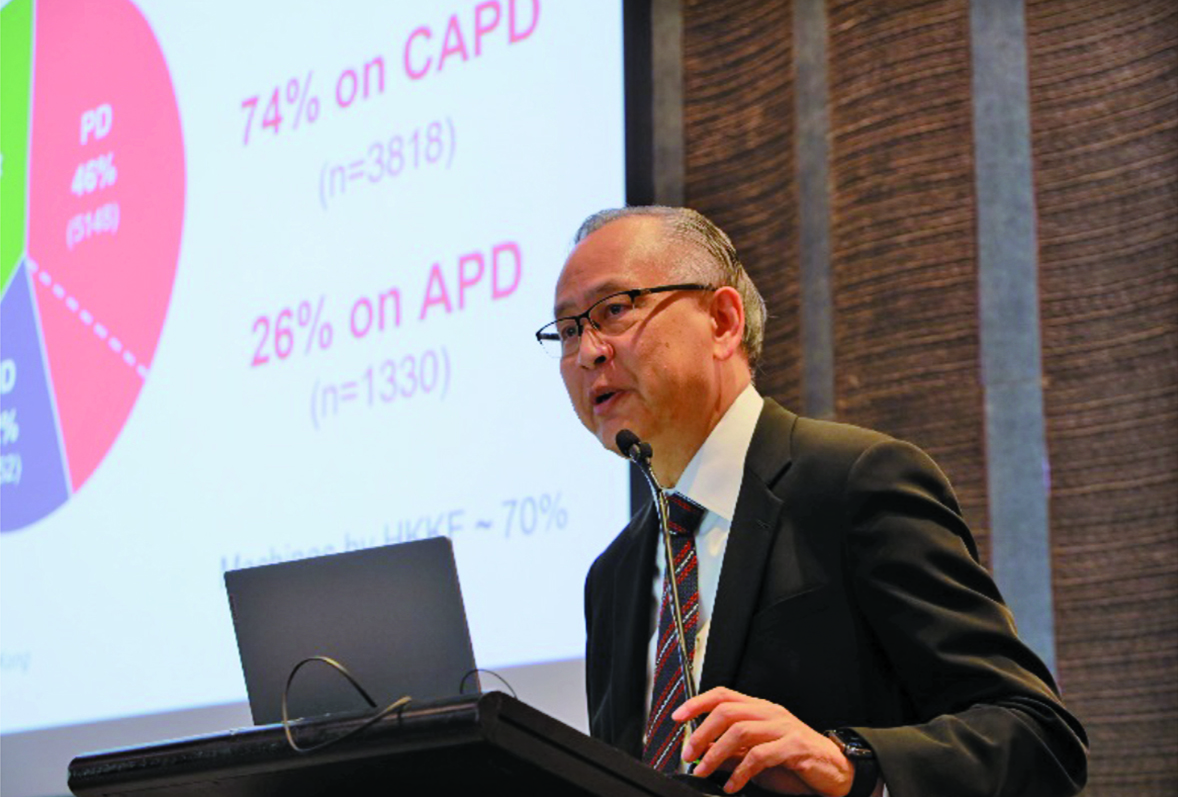
Dr. Lui Siu Fai, Chairman of Hong Kong Kidney Foundation, made an opening speech and introduced the HKKF APD program.
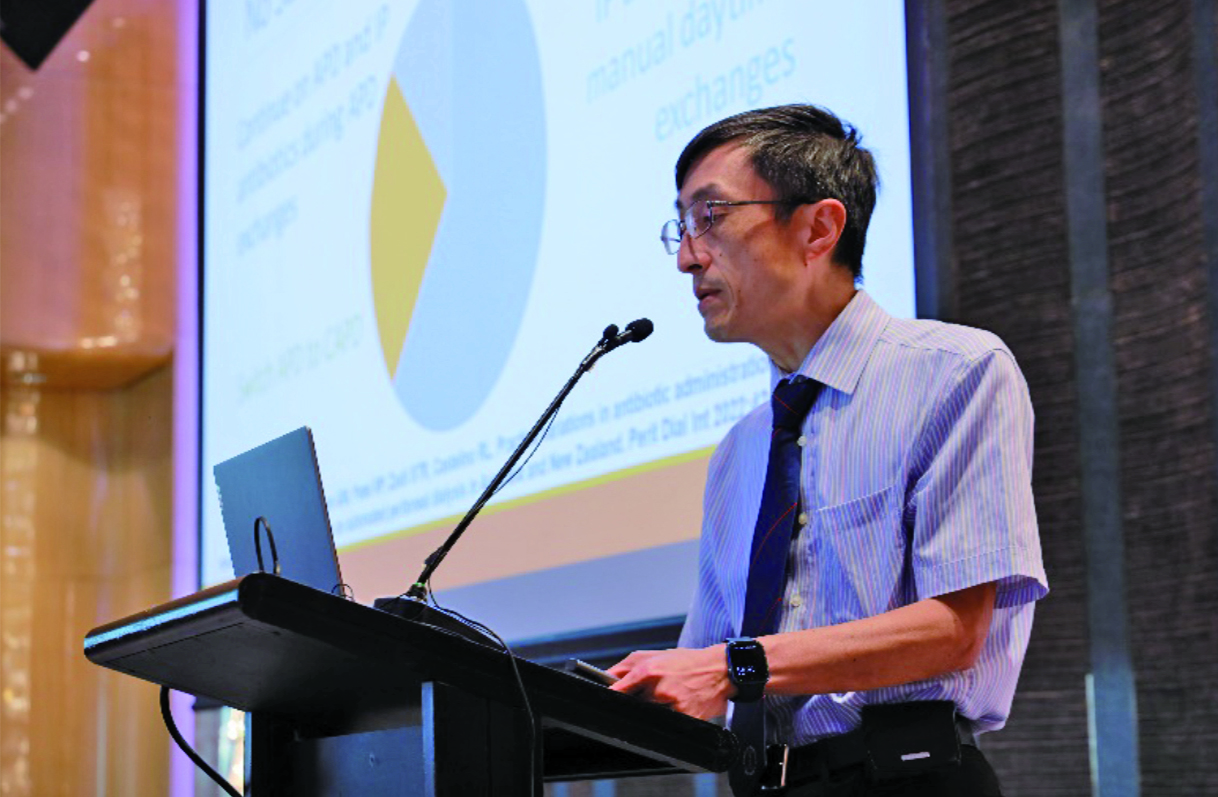
Dr. Chow Kai Ming, Chairman of the Hong Kong Society of Nephrology, shared his experience in handling peritonitis in APD patients.
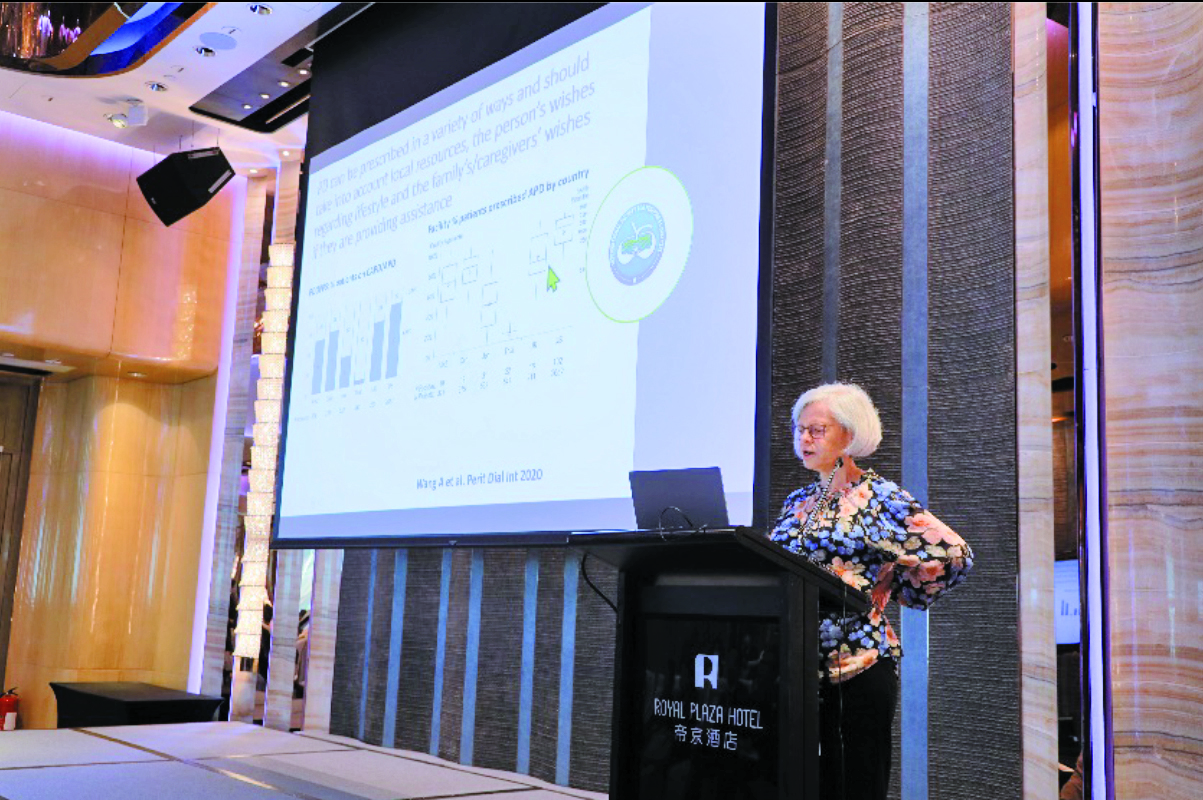
Prof. Edwina Brown, President of the International Society for Peritoneal Dialysis, was presenting her cases of personalised PD.
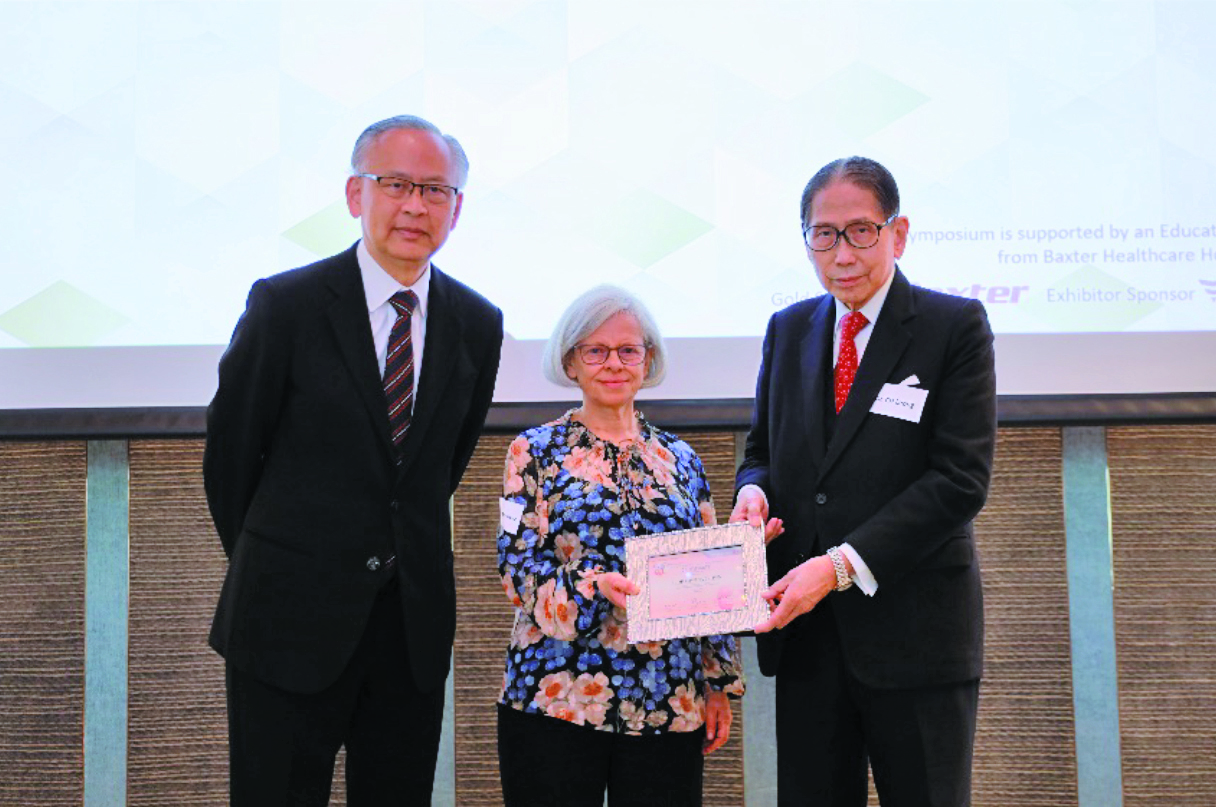
A gratitude certificate was presented to Prof. Edwina Brown by Dr. Lui Sui Fai (left) and Dr. Leong Che Hung (right).

The enlightening presentations were followed by a fruitful discussion among keynote speakers and audience.
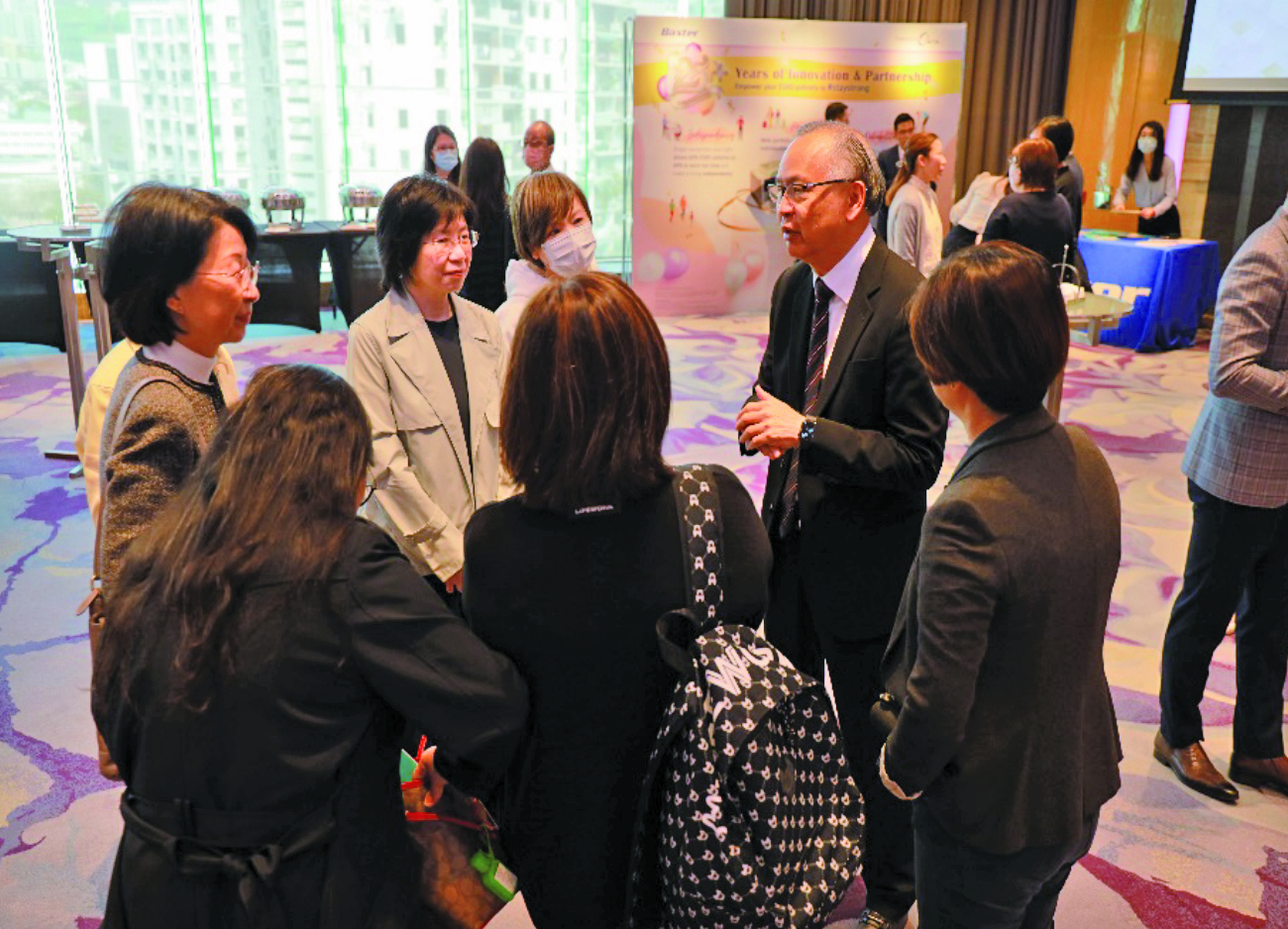
An interactive discussion with Dr. Lui.





